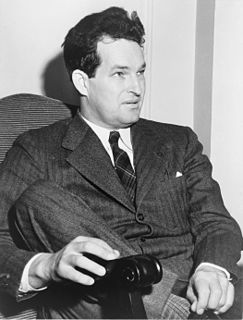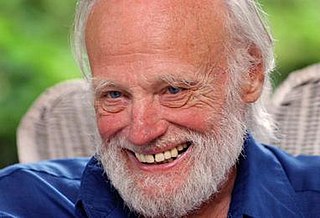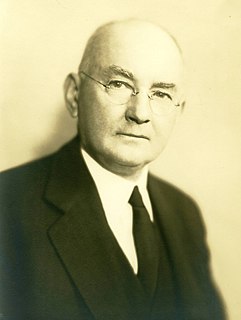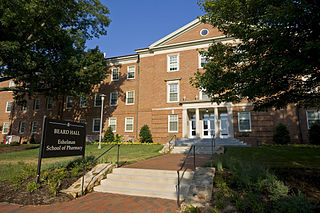James Osler Bailey (August 12, 1903 – 1979) was a professor of literature who taught at the University of North Carolina at Chapel Hill. He wrote on a wide slate of topics ranging from the works of Edgar Allan Poe and Thomas Hardy to science fiction and utopian literature.

The University of North Carolina at Chapel Hill (UNC), also known as UNC-Chapel Hill, Chapel Hill, North Carolina, or simply Carolina is a public research university in Chapel Hill, North Carolina. It is the flagship of the 17 campuses of the University of North Carolina system. After being chartered in 1789, the university first began enrolling students in 1795, which also allows it to be one of three schools to claim the title of the oldest public university in the United States. Among the claimants, the University of North Carolina at Chapel Hill is the only one to have held classes and graduated students as a public university in the eighteenth century.

Edgar Allan Poe was an American writer, editor, and literary critic. Poe is best known for his poetry and short stories, particularly his tales of mystery and the macabre. He is widely regarded as a central figure of Romanticism in the United States and of American literature as a whole, and he was one of the country's earliest practitioners of the short story. He is generally considered the inventor of the detective fiction genre and is further credited with contributing to the emerging genre of science fiction. He was the first well-known American writer to earn a living through writing alone, resulting in a financially difficult life and career.
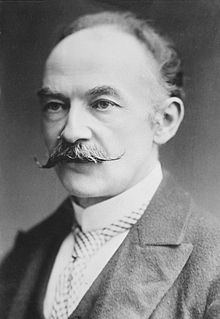
Thomas Hardy was an English novelist and poet. A Victorian realist in the tradition of George Eliot, he was influenced both in his novels and in his poetry by Romanticism, especially William Wordsworth. He was highly critical of much in Victorian society, especially on the declining status of rural people in Britain, such as those from his native South West England.
Contents
Bailey was born at Raleigh, North Carolina, to Thomas Benjamin Bailey, a city employee, and Nancy Priscilla (née Smith). He was educated at the University of North Carolina (A.B. 1924, M.A. 1927, Ph.D 1934) and taught English there from 1930. [1]
The Science Fiction Research Association gives recognition in the form of the Pilgrim Award in honor of his seminal work Pilgrims Through Space and Time. Reviewer Willy Ley, however, found the volume disappointing; while praising the core of the work, the master's thesis and doctoral dissertation written by Bailey years earlier, he faulted the remainder of the book as inferior, "obviously pasted to the original dissertation both loosely and clumsily." [2]
The Science Fiction Research Association (SFRA), founded in 1970, is the oldest, non-profit professional organization committed to encouraging, facilitating, and rewarding the study of science fiction and fantasy literature, film, and other media. The organization’s international membership includes academically affiliated scholars, librarians, and archivists, as well as authors, editors, publishers, and readers. In addition to its facilitating the exchange of ideas within a network of science fiction and fantasy experts, SFRA holds an annual conference for the critical discussion of science fiction and fantasy where it confers a number of awards, and it produces the quarterly publication, SFRA Review, which features reviews, review essays, articles, interviews, and professional announcements.
The Pilgrim Award is presented by the Science Fiction Research Association for Lifetime Achievement in the field of science fiction scholarship. It was created in 1970 and was named after J. O. Bailey’s pioneering book Pilgrims Through Space and Time. Fittingly, the first award was presented to Bailey.

Willy Otto Oskar Ley was a German-American science writer and proponent of cryptozoology, a pseudoscience. The crater Ley on the far side of the Moon is named in his honor.
He was struck by a car and died later from a blood clot, in 1979.




